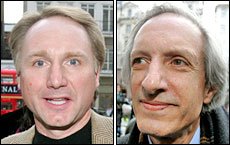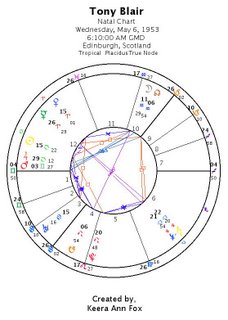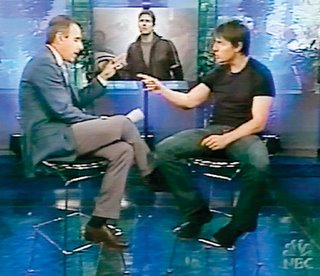By Jonathan Milne

A black limousine is waved through the gate of London's Royal Courts of Justice and slides up to the door of the back courthouse, the grey concrete Thomas More Building.
A large bodyguard steps out first, and looks around warily. Gail Rebuck, of Random House, the most powerful woman in British publishing, emerges, followed by Steve Rubin, president of the US subsidiary Doubleday.
Finally, a small nervous-looking American with receding blond hair steps out. It's Dan Brown, 40, the unprepossessing Wizard of Oz behind The Da Vinci Code.
His 2003 thriller has sold more than 40 million copies worldwide and he reportedly earned US$45 million ($70m) in royalties in the first year alone. And he looks worried.
Then a tall, slim New Zealander crosses the courtyard with his wife. They have just arrived on foot through the main entrance, like most other people. We know he is 58: Michael Baigent celebrated his birthday on the first day of this court case, in which he and Richard Leigh are suing Random House for plagiarism.
In 1982, the two men, with Englishman Henry Lincoln, wrote a piece of historical conjecture called The Holy Blood and the Holy Grail, in which they argued Jesus had been a claimant to the throne of Palestine - a mere mortal. After his crucifixion, his wife Mary Magdalene and their child fled to the south of France, where they founded a royal dynasty that survives to this day, to the fury of the Roman Catholic Church.
The book was controversial. They went head-to-head on television with the Bishop of Birmingham. But they never faced media scrums such as those outside court this month.
Random House may not be the Vatican but it is still a formidable opponent, especially two months out from the first screening of the $57m Da Vinci Code movie, starring Tom Hanks. The scheduled release of that movie and the millions Random House is earning every month from Brown's book, are jeopardised by this lawsuit. So when Michael Ferran Meritxell Baigent gave his name in the witness stand on Tuesday, and swore to tell the truth about the origin of Dan Brown's novel, it was with inevitable trepidation.
Through three days, the grey-haired Baigent twirled his glasses between thumb and index-finger and tired under cross-examination. Time and time again he was forced to politely acknowledge that his evidence of similarities between the books did not stack up: "I concede that, my Lord," he said, repeatedly.
Mr Justice Peter Smith toyed reflectively with his moustache. Random House barrister John Baldwin bristled with impatience.
Yet Baigent remained strangely composed. For, it would seem, he was after some far greater truth.
It was hard for those "trained in the Christian tradition" like him to disregard what they had learned in Sunday school, he said, but his research indicated Jesus was a mortal with a claim to the throne of Palestine.
As a child growing up in Wakefield, on the outskirts of Nelson, Baigent attended Catholic Church three times a week. His father was a "fervent Catholic" teacher, who ensured his son was taken out of school from the age of 5 to have private lessons in Catholic theology from either a priest or a monk. But gradually he came to doubt what he was being taught. "After realising I would never have the same beliefs as my father, I attended, in turn, every Christian church in our town, including Methodist, Anglican, Presbyterian and Mormon churches," he says.
After watching Baigent's third gruelling day in the witness box, his English wife, Jane, and daughter Tansy, 20, agreed to venture across Fleet St to Daley's Wine Bar, to fill in some of the gaps in the life story of a very private man.
Baigent's father had left the family when his son was 8. His maternal grandfather, Lewis Baigent, became the man he looked up to. He took his grandfather's surname.
Jane says: "His grandfather answered intelligently all Michael's questions about everything he was interested in - his grandfather always rooted out answers."
Baigent went to Canterbury University but quickly gave up on the science courses he had thought would help him in his grandfather's timber mills and instead began a BA in comparative religion and philosophy, studying Buddhism, Hinduism and Christianity, and discovering Eastern religions and meditation.
He joined "The Builders of Adytum", an occult group following what could be defined as Christian Kabbalah. "He was interested in a history that New Zealand doesn't have, ancient civilisations," says Tansy. "New Zealand is very isolated and he left as soon as he could. He wished to see the world."
Baigent went to Australia and South-East Asia. But, in his determination to experience the world, he didn't take enough money, and, when he arrived in India, he had to survive without accommodation on "a potato and a bowl of soup".
"There was another homeless man lying on the street with his daughter, and he used to share an orange with this man each morning."
He returned to Auckland to complete his degree but continued his fascination with esoteric religious thought and "heretics" like the Knights Templar. In 1976, in London, he met the long-haired Richard Leigh, who shared his interest in the esoteric.
They shared a Camden flat and Leigh introduced him to France's Rennes-le-Chateau mystery - it took over his life. "With hindsight, I became obsessed with it," Baigent says in the court documents.
He sold his expensive cameras to fund their research, worked briefly in the BBC photographic department and worked night shifts at a soft-drinks factory.
Leigh and Lincoln followed the trail from Rennes-le-Chateau, through the Priory of Sion, the Merevingian dynasty, the Grail Romances - all the way back to Jesus and the child they claim he fathered to Mary Magdalene.
The Holy Blood and the Holy Grail was published on January 18, 1982, the day after the authors' television clash with the Bishop of Birmingham. It shot up the bestseller lists, and Paramount bought the film rights. It has reportedly sold about two million copies since - not a patch on The Da Vinci Code, but still healthy. Indeed, sales of the former jumped 745 per cent in the first week of the court hearing - around 30,000 extra sales. If that continues through to the judgment, it will help offset the authors' legal costs a little - and also those of defendant Random House which, ironically, is also Dan Brown's publisher.
But the authors will need to win the case to make it worthwhile: experts estimate their legal costs at more than $1.3 million. Unconfirmed newspaper reports say they are seeking more than $25 million in damages.
"Brother Michael" Baigent's job as editor of the quarterly Freemasonry Today can hardly pay much, though that and his books force him to keep the family address in Somerset secret. Being a prominent Freemason and critic of the Catholic Church seems to attract strange and not necessarily friendly types, the family feels. Tansy says she once suggested her father use a nom de plume: "At the time he wrote Holy Blood Holy Grail, he got quite a lot of stigma. I think he had to face quite a few hostile people but he didn't want to hide away."
Jane adds: "Obviously the Pope and the Catholic Church got upset about him because he criticised the Catholic Church in his book The Inquisition. But if he thinks something needs to be exposed or brought into the public domain, he will say it."
And perhaps that is why Baigent seems so composed in the witness box. For him, it is not just a legal battle but also a philosophical one. He is playing for higher stakes.
Maybe that's why Dan Brown, a devout Christian, looks concerned.
Outside the court, the usually reclusive Brown insisted that he would never deny the crucifixion: "I am well aware of Christ's crucifixion and ultimate resurrection as the very core of the Christian faith," he said.
But Baigent believes his arguments about Jesus's mortality, if accepted, have the potential to mend fences between religions.
Islam already recognises Jesus as a prophet, Judaism is happy with Messianic contenders, and some strands of Christianity already accept Jesus's mortality - he argues it is just the Catholic Church that feels threatened.
His ordeal in the witness box is now over - but Brown's turn begins tomorrow. Baigent respects Brown, but he wants his work to be recognised, says wife Jane.
"He's not angry. It just seems unfair And this hasn't been an easy thing to do."
- HERALD ON SUNDAY










